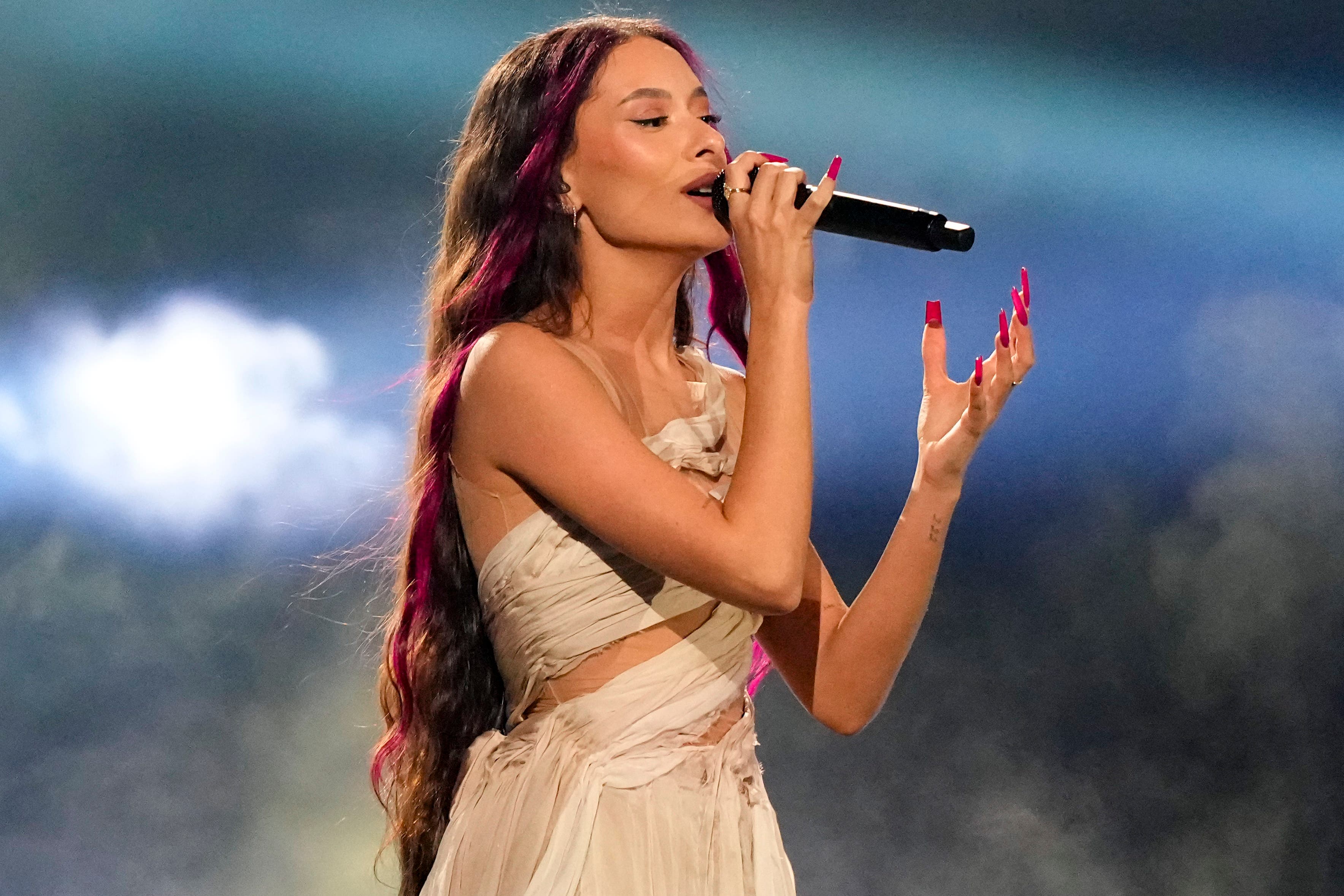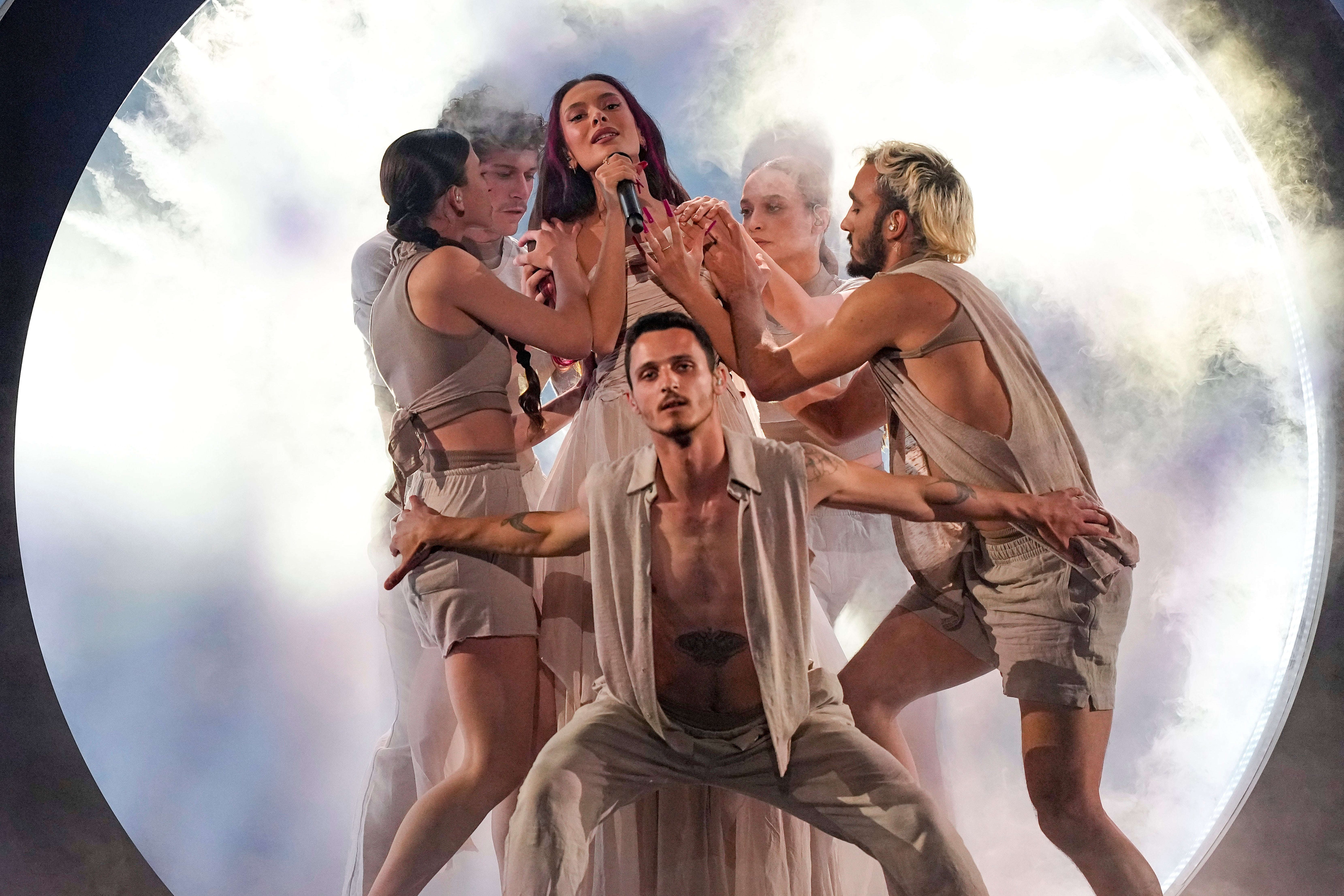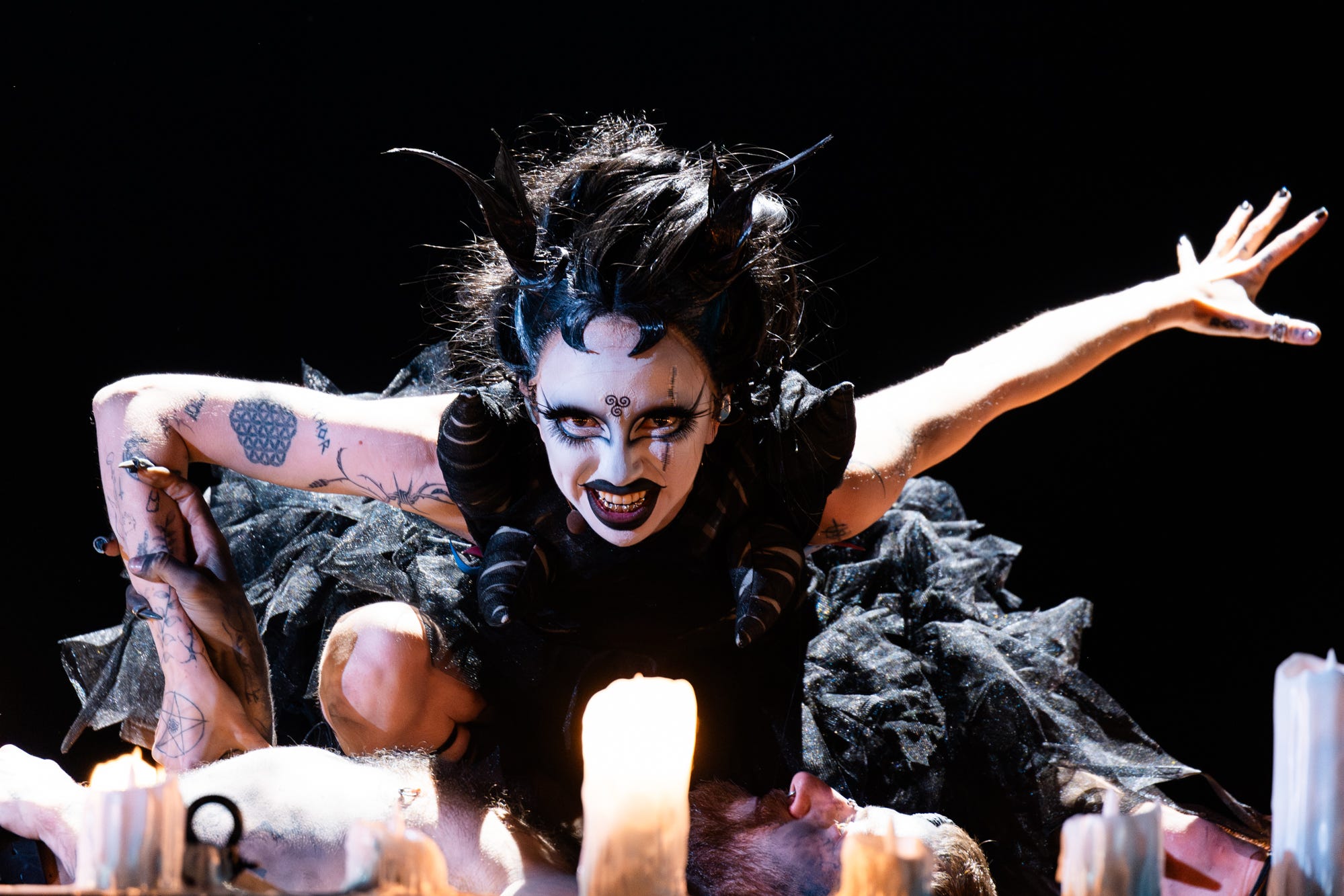Israel’s Eden Golan to compete in Eurovision 2024 semi-final after being booed during rehearsals
The country has faced calls to be excluded from the contest as protests take place over its war on Gaza

Your support helps us to tell the story
From reproductive rights to climate change to Big Tech, The Independent is on the ground when the story is developing. Whether it's investigating the financials of Elon Musk's pro-Trump PAC or producing our latest documentary, 'The A Word', which shines a light on the American women fighting for reproductive rights, we know how important it is to parse out the facts from the messaging.
At such a critical moment in US history, we need reporters on the ground. Your donation allows us to keep sending journalists to speak to both sides of the story.
The Independent is trusted by Americans across the entire political spectrum. And unlike many other quality news outlets, we choose not to lock Americans out of our reporting and analysis with paywalls. We believe quality journalism should be available to everyone, paid for by those who can afford it.
Your support makes all the difference.Israel’s Eurovision 2024 delegate Eden Golan will perform in the second semi-final of this year’s song contest amid ongoing protests in Malmo, Sweden.
The 20-year-old singer is due to take to the stage this evening (Thursday 9 May), where she will perform “Hurricane”, a track reworked from her country’s original entry “October Rain”.
Israel was asked by the contest’s organisers the Eurovision Broadcasting Union (EBU) to change their song after “October Rain” was widely interpreted as a reference to the Hamas attacks on Israel on 7 October last year.
Golan will compete against fellow delegates including Norway’s Gate, San Marino’s band Megara, Switzerland’s Nemo and Danish entrant Saba.
The EBU has resisted calls to ban Israel from competing amid the war in the Gaza Strip, where the Palestinian death toll is believed to have reached 34,000 people.
A pro-Palestinian march is taking place today as part of continued demonstrations in Sweden over Israel’s participation, which Swedish police said would cause “disturbance to traffic”.
Golan told ITV News this week that she could not have asked “for a better year to be representing my country”.

There were reportedly shouts and boos during her rehearsal on Wednesday 8 May, including cries of “free Palestine”.
Meanwhile, the EBU doubled down on its stance over Israel this week, saying that to exclude Israeli broadcaster Kan from the competition would have been a “political decision”.
Speaking on Sunday Morning With Trevor Phillips, Jean Philip De Tender, the deputy director general of the European Broadcasting Union (EBU) which organises Eurovision, said it based its decision to include Kan on the competition rules in place.
“I fully agree it is a family event and the great thing about this music competition is that it’s all about values,” he said. “It’s about uniting onstage all of these young talents, these participants, and they do great. It’s about diversity and inclusion.
“But there are competition rules and you need to follow the competition rules and take decisions based on these competition rules.
“If you were to exclude Kan outside of these competition rules, that would have been a political decision, as such, which we cannot take.”

Discussing the backlash, De Tender said: “We do understand the concerns and the deeply held views that many people have around the war in the Middle East and I think nobody can remain untouched by the profound suffering of everybody involved in that war.
“The Eurovision Song Contest is a music event which is organised and co-produced by 37 public broadcasters, so it’s not a competition between nations or governments.”
The EBU announced ahead of the competition that they reserve the right to remove any Palestinian flags and pro-Palestine symbols at the show.
It also said people are not allowed to wave banners with slogans relating to the war – ticketholders are only allowed to bring and display only flags representing the 37 participating countries in the arena.
Despite this, Tuesday’s first semi-final saw former Swedish contestant and opening act Eric Saade wear a keffiyeh pattern material, commonly used by people who want to show they are pro-Palestinian, on his arm.
The EBU said that he “chose to compromise the non-political nature of the event” and it “regrets” the broadcast.
In an Instagram story, Saade said that the material was a “way of showing a part of my origin” and was a gift as a child from his father, who is of Palestinian origin.
He also said: “I just wanted to be inclusive and wear something that is authentic to me – but the EBU seems to think my ethnicity is controversial.
“It says nothing about me, but everything about them.”
Irish delegate Bambie Thug also revealed that they were asked to change their body paint ahead of their performance at the first semi-final, which included wording in a medieval dialect that translated to “peace” and “ceasefire”.

The EBU maintained that this could have broken the rules that are “designed to protect the non-political nature of the event”.
Israel has won the Eurovision Song contest a total of four times, most recently with Netta and her song “Toy” in 2018.
However, Golan has tough competition from Switzerland’s Nemo, who is widely considered one of the favourites to win at the grand final this Saturday, along with the Netherlands’ Joost and Norway’s Gate.
The second Eurovision semi-final will be broadcast on BBC One and BBC iPlayer from 8pm tonight (Thursday 9 May).
Additional reporting by agencies